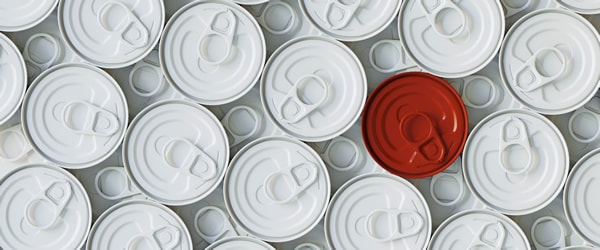RASFF

2023 Food Contact Substances and Materials RASFF Notifications
In 2022, 188 notifications were received regarding food contact materials. Nearly 40% of the notifications are plastic materials. This is followed by metal alloys, paper and cardboard, silicones, ceramics, wood materials, glass, gloves, non-stick coatings. The most commonly reported test is primary aromatic amines. This is followed by lead, total migration, formaldehyde, nickel phthalate migrations and total volatile matter in silicone materials. While all primary aromatic amines were found in plastics, lead was detected in many products such as paper, metal, plastic, glass, metal alloys, etc. Biocides such as "Benzisothiazolinone (BIT)" and "Carbendazim, Diuron" were detected in materials such as paper, cardboard and wood, which were not found in previous years.
Food Contact Substances in RASFF Notifications
A significant proportion of notifications to the RASFF system relate to food contact materials. The main reasons for these notifications are:
Chemical Migration:
-
- Migration of substances such as Bisphenol A (BPA) and phthalates from plastic packaging.
- Migration of mineral oils in paper packaging.
- Migration of heavy metals (lead, cadmium) from metal containers into food.
Use of Prohibited Substances:
-
- Detection of chemicals banned by the European Union.
For example, products containing melamine and formaldehyde.
Inappropriate Production Standards:
-
- Failure to meet the set technical specifications.
Microbiological Contamination:
-
- Detection of bacteria or mold in food contact materials.
Risk Management: Precautions for Food Contact Materials
1.
Regulations In the European Union, the main regulation on substances in contact with food is (EC) No 1935/2004. This regulation requires that all FCMs must be produced in a way that does not harm human health.
Legislation in Turkey:
- The Turkish Food Codex Regulation on Substances and Materials in Contact with Food provides a framework in line with the EU.
- Strict inspections are carried out for imported and domestic products.
2. Testing and Analysis
Regular testing and analysis should be carried out to prevent risks from food contact materials:
- Total Migration Test: Measures the migration of all chemicals into food.
- Specific Migration Test: Migration of specific chemical components (BPA, phthalates, etc.).
- Chemical Analysis: Detection of hazardous substances (e.g. lead, arsenic).
3. Determination of Production Standards
- Compatibility of raw materials used in the production of food contact materials.
- Implementation of ISO 22000 and GMP (Good Manufacturing Practices) standards.
4. Education and Awareness
- Raising awareness of producers and consumers about RASFF notifications and legal regulations.
- Organizing training programs on food safety standards.
As Nanolab Laboratories Group, we keep up to date with RAFSS notifications and expand our test scope with each update. We carry out tests on all RASSF notified materials (including gloves and materials likely to contain biocides) with reference to the regulatory requirements of the European Union, LFGB etc. and the methods published by the technical committees CEN/TC 194, ISO/TC 166, ISO/TC 107, ISO/TC 186, ISO/TC 34/SC 12, ISO/TC 6.

